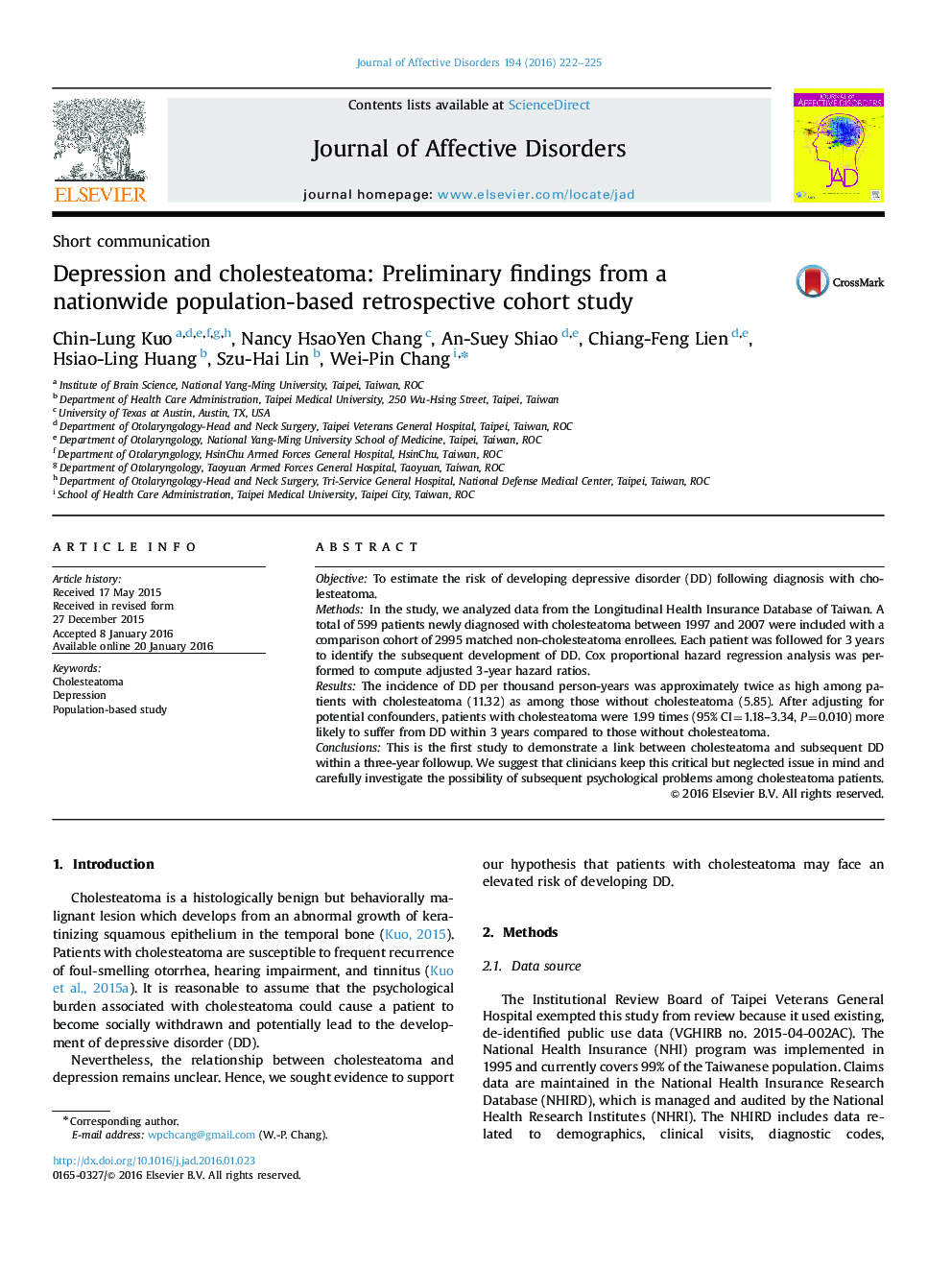| Article ID | Journal | Published Year | Pages | File Type |
|---|---|---|---|---|
| 4185876 | Journal of Affective Disorders | 2016 | 4 Pages |
•A relationship between cholesteatoma and depression has not been established.•The study demonstrated a link between the cholesteatoma and depression.•Clinicians should investigate the potential depression in cholesteatoma patients.
ObjectiveTo estimate the risk of developing depressive disorder (DD) following diagnosis with cholesteatoma.MethodsIn the study, we analyzed data from the Longitudinal Health Insurance Database of Taiwan. A total of 599 patients newly diagnosed with cholesteatoma between 1997 and 2007 were included with a comparison cohort of 2995 matched non-cholesteatoma enrollees. Each patient was followed for 3 years to identify the subsequent development of DD. Cox proportional hazard regression analysis was performed to compute adjusted 3-year hazard ratios.ResultsThe incidence of DD per thousand person-years was approximately twice as high among patients with cholesteatoma (11.32) as among those without cholesteatoma (5.85). After adjusting for potential confounders, patients with cholesteatoma were 1.99 times (95% CI=1.18–3.34, P=0.010) more likely to suffer from DD within 3 years compared to those without cholesteatoma.ConclusionsThis is the first study to demonstrate a link between cholesteatoma and subsequent DD within a three-year followup. We suggest that clinicians keep this critical but neglected issue in mind and carefully investigate the possibility of subsequent psychological problems among cholesteatoma patients.
